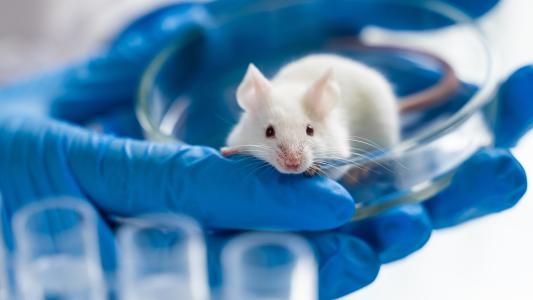Scientists at MIT, the McGovern Institute, and the Broad Institute have unveiled STOPCovid, a CRISPR-based coronavirus test that avoids many of the shortcomings of existing diagnostics tests.
“It’s inexpensive, does not require a lab, and can return results within an hour using a paper strip, not unlike a pregnancy test,” lead researcher Feng Zhang told STAT. “This helps address the urgent need for widespread, accurate, inexpensive, and accessible COVID-19 testing.”
A CRISPR-Based Coronavirus Test
In 2017, Zhang co-developed SHERLOCK, a tool that uses the gene-editing tool CRISPR to detect viruses within samples.
In February, he and his collaborators unveiled a test that uses SHERLOCK to detect the novel coronavirus, SARS-CoV-2, and hospitals in Thailand are now using it on patients.
Still, Zhang’s team wasn’t fully satisfied with that CRISPR-based coronavirus test as it requires testers to move patient samples between multiple test tubes.
The test never produced a false positive and only missed 3% of infections.
“It’s a little inconvenient, especially if you want to scale it up,” Zhang told the New York Times. “So we focused our efforts on turning it into something that’s easy to run.”
STOPCovid is the streamlined version of that first test.
To run the new CRISPR-based coronavirus test, a tester places a saliva or nasopharyngeal swab sample into a tube containing chemicals that rip open cells.
They then drop a bit of the liquid from that first tube into a second tube filled with a CRISPR-containing solution. Just like it would if used for gene editing, the CRISPR system hunts for a specific bit of genetic material — in this case, part of the new coronavirus’s RNA.
The scientists then heat that tube to 140 degrees Fahrenheit for an hour.
After that, a paper strip is inserted into the tube. If a single line appears on the strip, the coronavirus isn’t present in the sample. If two lines appear, it is.
The scientists tested STOPCovid using nasopharyngeal swabs from 12 patients diagnosed with COVID-19.
For 11 of the patients, the test correctly detected the coronavirus three out of three times. For the remaining patient, it detected the virus two out of three times.
The team also tested samples from five healthy people, and STOPCovid consistently returned negative results for all five.
That means the test never produced a false positive and only missed 3% of infections. That’s slightly better than the 5% missed by DETECTR, another CRISPR-based coronavirus test, and significantly better than the 30% reportedly missed by the commonly used PCR swab test.
Expanded COVID-19 Testing
The whole testing process takes about an hour, and the scientists estimate that the materials for one test cost just $6 — if mass produced, that price could even go down.
The simplicity of the CRISPR-based coronavirus test also makes it ideal for use in a variety of settings.
“The ability to test for COVID-19 at home, or even in pharmacies or places of employment, could be a game-changer for getting people safely back to work and into their communities,” Zhang said in a press release.
Right now, this test is just for research purposes. However, the scientists are now talking to the FDA about securing emergency use authorization for their CRISPR-based coronavirus test so that it can be used to diagnose patients.
In the interim, they’ve prepared enough reagents to support 10,000 tests, which they’re offering to send to other COVID-19 researchers for free for evaluation.
We’d love to hear from you! If you have a comment about this article or if you have a tip for a future Freethink story, please email us at tips@freethink.com.
